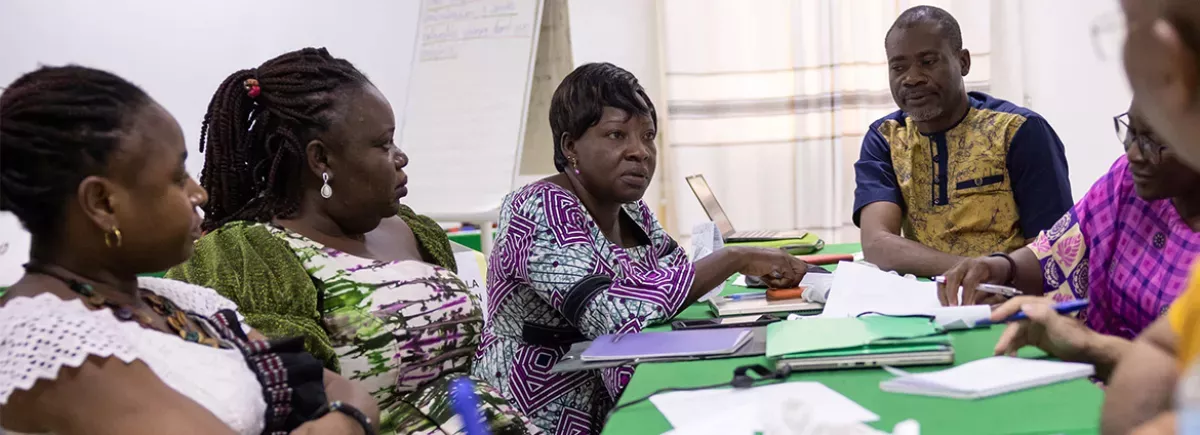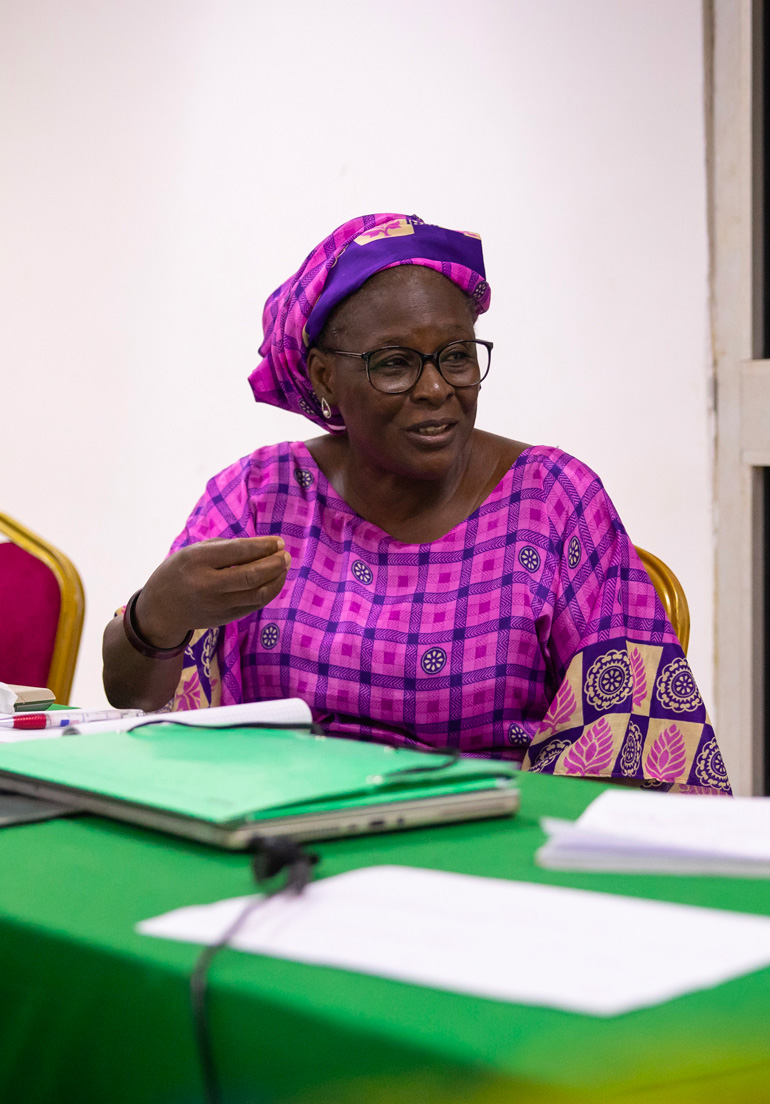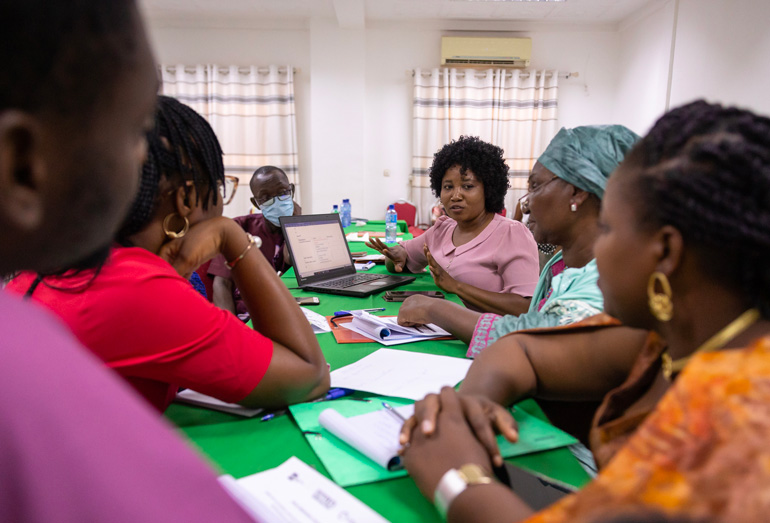
Launch day for MédiaSahel pour Elles
Related project
MediaSahel for WomenOn 27 and 28 July in Ouagadougou (Burkina Faso), MédiaSahel launched an ambitious ‘‘gender’’ component within this AFD-funded project. The first activity brought together civil society organisations (CSOs) and UNALFA in a consultation workshop.
The MédiaSahel ‘‘pour Elles’’ (for her) component “will bring a wave of freedom to radio stations,” hoped Gilles Chausse, Director of AFD Burkina Faso, at the launch of MédiaSahel pour Elles in late July in Ouagadougou (Burkina Faso). “It must change practices. It must be a field project and not an academic discussion.” This is the ambition of the “gender” aspect of the MédiaSahel project, which wants to support this development. And, in the opinion of Habibou Kouanda, a sociologist specialising in gender issues, the situation is urgent.

“Women represent only 25% of people working in the media,” she notes. Even if at ISTIC, the Institute of Information and Communication Sciences and Techniques of Ouagadougou, 95% of the workforce is female, stereotypes and prejudices remain anchored in people’s minds. “It is a profession that is looked down upon,” stresses the sociologist. “The written press is still okay, but female TV journalists are viewed as women being exhibitionists. Female radio journalists also face demands such as, ‘You must speak correctly, when you speak, you represent the whole family’.”
Prejudices experienced on a daily basis
And the context in terms of security does not make things easier. “Women are the ones who pay the heaviest price in their daily lives,” laments Jean-Baptiste Sawadogo, Chair of the UNALFA (National Union of Free Audiovisual Media of Burkina Faso – Union Nationale de l’Audiovisuel Libre du Faso). Female journalists are sometimes targeted directly. “In Djibo, a woman hosted an interactive show. At first, there were a few reactions,” states a journalist. “Some listeners argued that a woman cannot tell people what to do, that that is not a woman’s place. Later, she received a call from the jihadists, assuring her that this would be the last time her voice was heard on the radio.”
CSO representatives also experience these prejudices on a daily basis. As a result, many of them refuse to speak in the media and defend the causes that are dear to them.
There are therefore many mutual interests shared by these CSOs and the media. Bringing these two groups together is one of the goals of MédiaSahel pour Elles in the organisation of this first consultation workshop. This joint work has allowed the development of a list of around thirty subject areas that are close to the concerns of women in the field. They will be discussed as part of the Jeunes Wakat pour Elles programmes, funded by the project and produced by UNALFA in September.
Thanks to these new links, the partner radio stations will also benefit from an expanded pool of experts that they can request to take part on the air.
CSOs, for their part, will gain greater visibility and a more widespread voice for the messages they support.
Similar consultation workshops will be organised between now and the end of the year in Niger and Mali.



